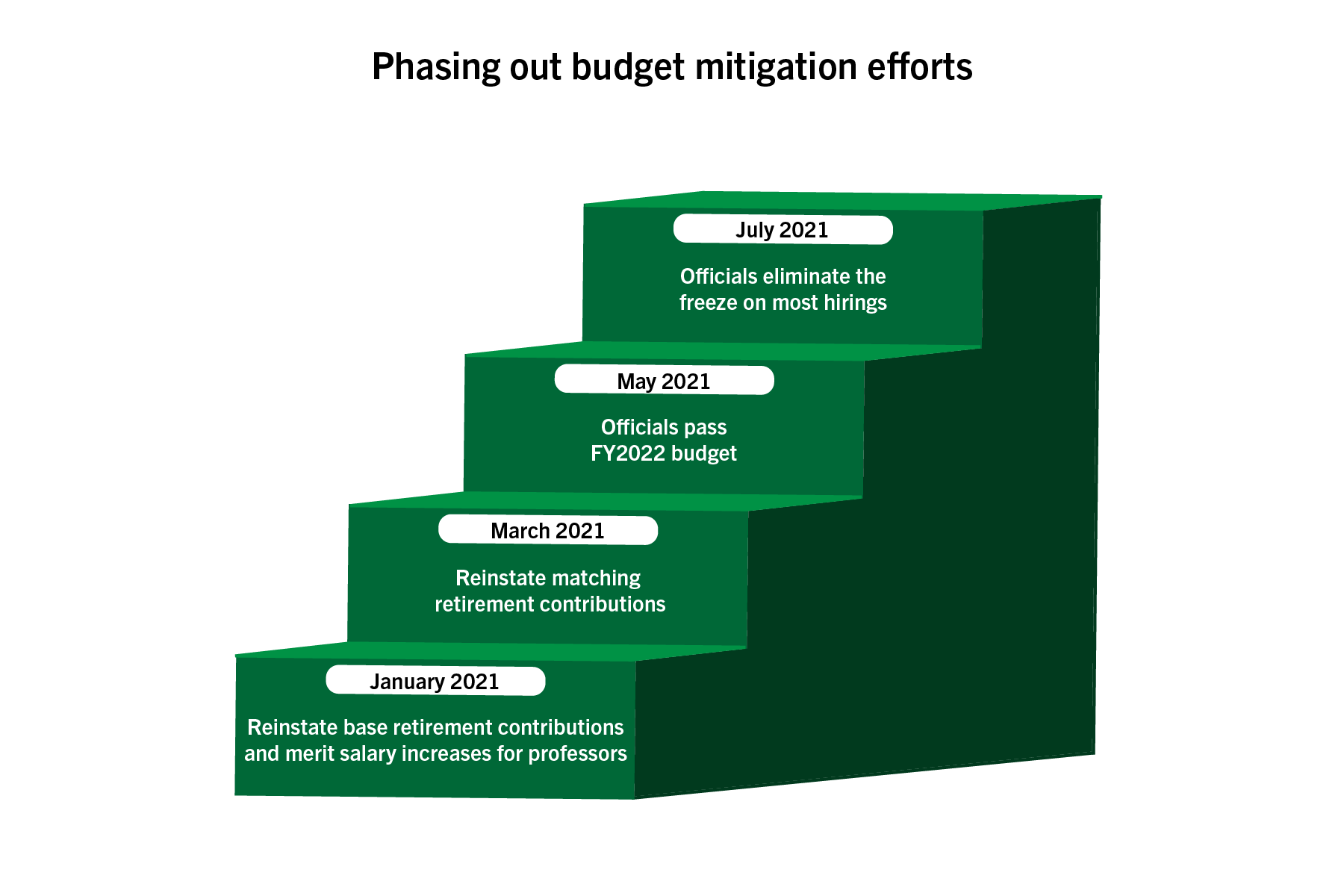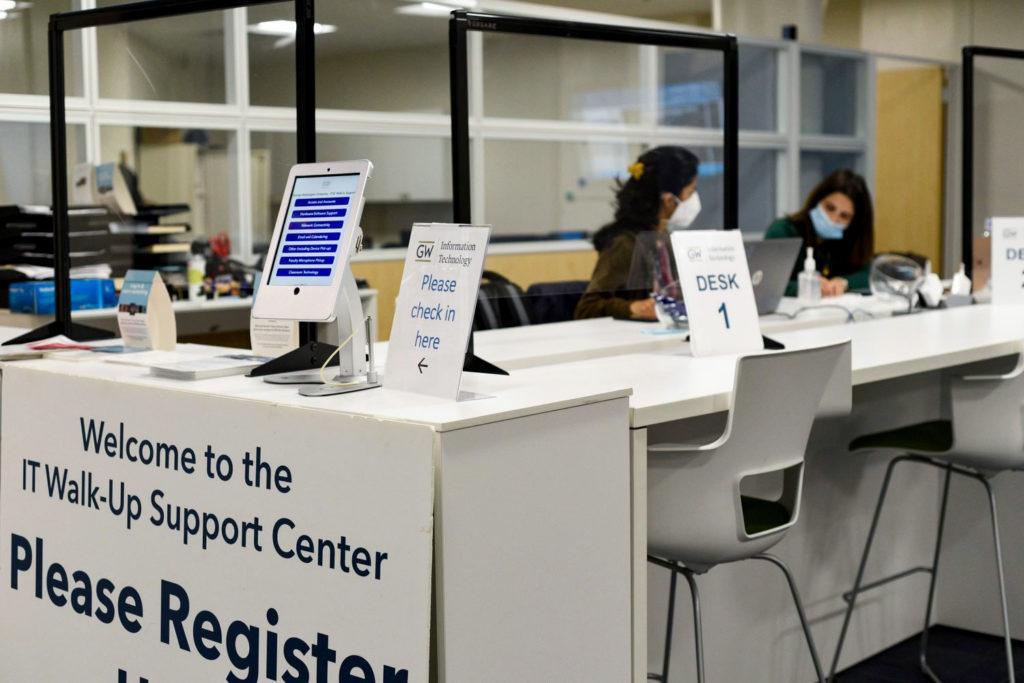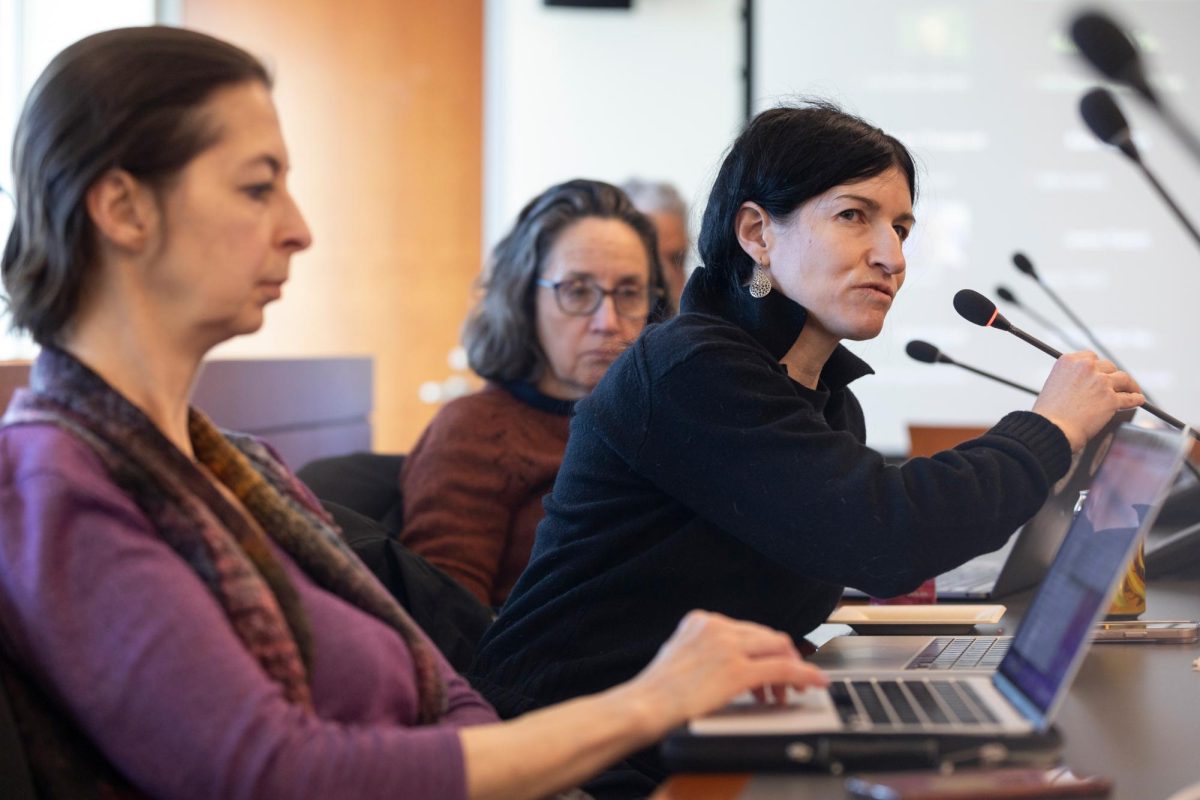Updated: Sept. 7, 2021 at 7:10 p.m.
The University’s rollback of budget mitigation efforts is nearing completion after officials sought to plug a $180 million pandemic-induced budget gap last year.
As part of administrators’ efforts to address the financial impact of the COVID-19 pandemic, they stopped most new hirings, halted base and matching retirement contributions for faculty and staff, laid off 339 staff and froze all employee salaries. Since December, University finances – with the exception of the reinstatement of capital projects – have gradually returned to a pre-pandemic model alongside the students and faculty who have returned to in-person classes.
University leaders have resumed departmental hiring this summer, and in March, they reinstated base and matching retirement fund contributions and continued promotion-related and merit-based salary raises.
Administrators said in April that they view the current fiscal year as a “transition year” as the University emerges from the pandemic, saying it will take time for GW to return to normal as the pandemic’s long-term impact slowly subsides.

Nicholas Anastacio | Graphics Editor
“We recognize that we’re a different institution than we were before we entered the pandemic,” University President Thomas LeBlanc said in an April interview. “We understand there’s still a lot of uncertainty in the future that we have to consider in our planning, and we don’t expect to suddenly revert to pre-pandemic operations or pre-pandemic budgets.”
Here’s a recap of the University’s progress in unwinding their budget mitigation efforts:
Closing the budget gap
Officials were met with a $180 million budget gap after they moved classes online in March 2020, setting up nearly three semesters of remote learning during the pandemic. Their efforts to mitigate the pandemic’s impact and reduce the size of the budget gap drew various calls from students, faculty and staff for LeBlanc to resign.
Less than two weeks after campus shut down last March, University leaders suspended almost all new hirings across GW and delayed most capital projects like updates to infrastructure, barring some urgent and ongoing initiatives like the renovations to Thurston Hall.
In April, LeBlanc announced senior administrators, including himself and then Provost Brian Blake, would accept a pay cut and would freeze all staff and faculty salaries at GW.
Experts in higher education and faculty relations said denying merit salary increases for promoted faculty would have a “severe” negative impact on faculty careers.
Faculty salaries at GW and across the nation during the last academic year dropped to their lowest point since the 2008 to 2009 financial crash, according to data from the American Association of University Professors in May 2021. Data showed a $1,023 drop in average salaries for full professors, $381 for associate professors and $478 for assistant professors.
Later in August, administrators suspended all base retirement contributions – funding that employers contribute to an employee’s retirement fund – and matching retirement fund contributions – payments that an employer matches when an employee opts to direct funding to a retirement fund.
Officials said last September that they ruled out the possibility of salary cuts for faculty and staff and planned to use $20 million in “unrestricted assets” to close part of the budget gap. The Faculty Association condemned any attempt by administrators to make salary cuts the previous month.
In December, Provost Brian Blake and Chief Financial Officer Mark Diaz told employees in an email that the University laid off 339 staff members in departments like facilities and events, saving GW an estimated $32 million, about 18 percent of the total budget gap during the fiscal year 2021.
By October, students, faculty and alumni had launched more than a dozen petitions either calling for GW to reverse its financial decisions – from halting staff layoffs to re-evaluating renovations to Thurston Hall – or asking for LeBlanc to resign.
LeBlanc announced this May that he would step down from his position at the end of the upcoming academic year.
Unwinding financial restrictions
With students living on campus and returning back to classes largely in person this semester, officials have started to roll back the various budget mitigation policies they implemented last year.
Officials reinstated base retirement contributions and merit salary increases last December three months after making the suspension announcement, releasing another announcement in March stating that matching retirement contributions and faculty merit salary increases would return in July.
The Board of Trustees passed its budget for fiscal year 2022 in May amid ongoing disagreements between faculty and University leaders over funding areas as GW started to prepare for its “phased reopening.” Trustees delayed the passage of the previous year’s budget because of financial uncertainty amid the pandemic.
Faculty said officials should direct more funds to research in light of delays to travel and research during the pandemic. But Chief Financial Officer Mark Diaz said they would set more money aside for a surplus to invest in the University’s long-term wellbeing like in its infrastructure.
Officials eliminated the freeze on most hiring in July after dissolving the Resource Allocation Committee – a group of University leaders assembled during the pandemic to assess which hiring would be necessary during the public health crisis. The University also resumed regular staff hiring in departments that had several layoffs last year, including events, central communications, athletics and technology.
“We were very proud of all of our previous staff in events and venues and would be honored to welcome back any former staffers that are selected through the interview process, as well as welcome in the new members of the team,” Paul Hegarty, the associate vice president of events, said late last month.
This post has been updated to correct the following:
The Hatchet incorrectly swapped the definitions for base and matching retirement contribution funds. This post has been updated with the correct definitions for each. We regret this error.








